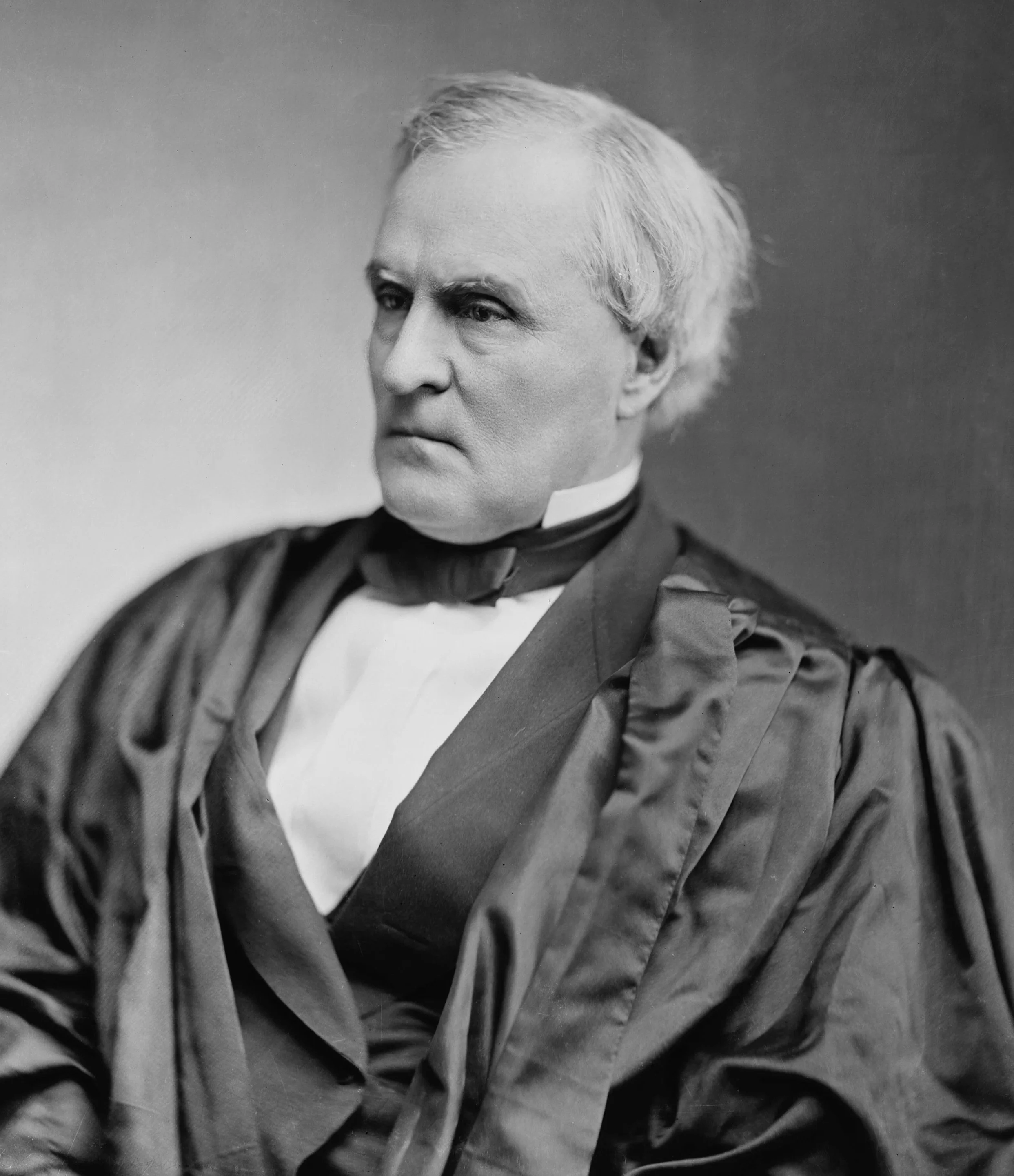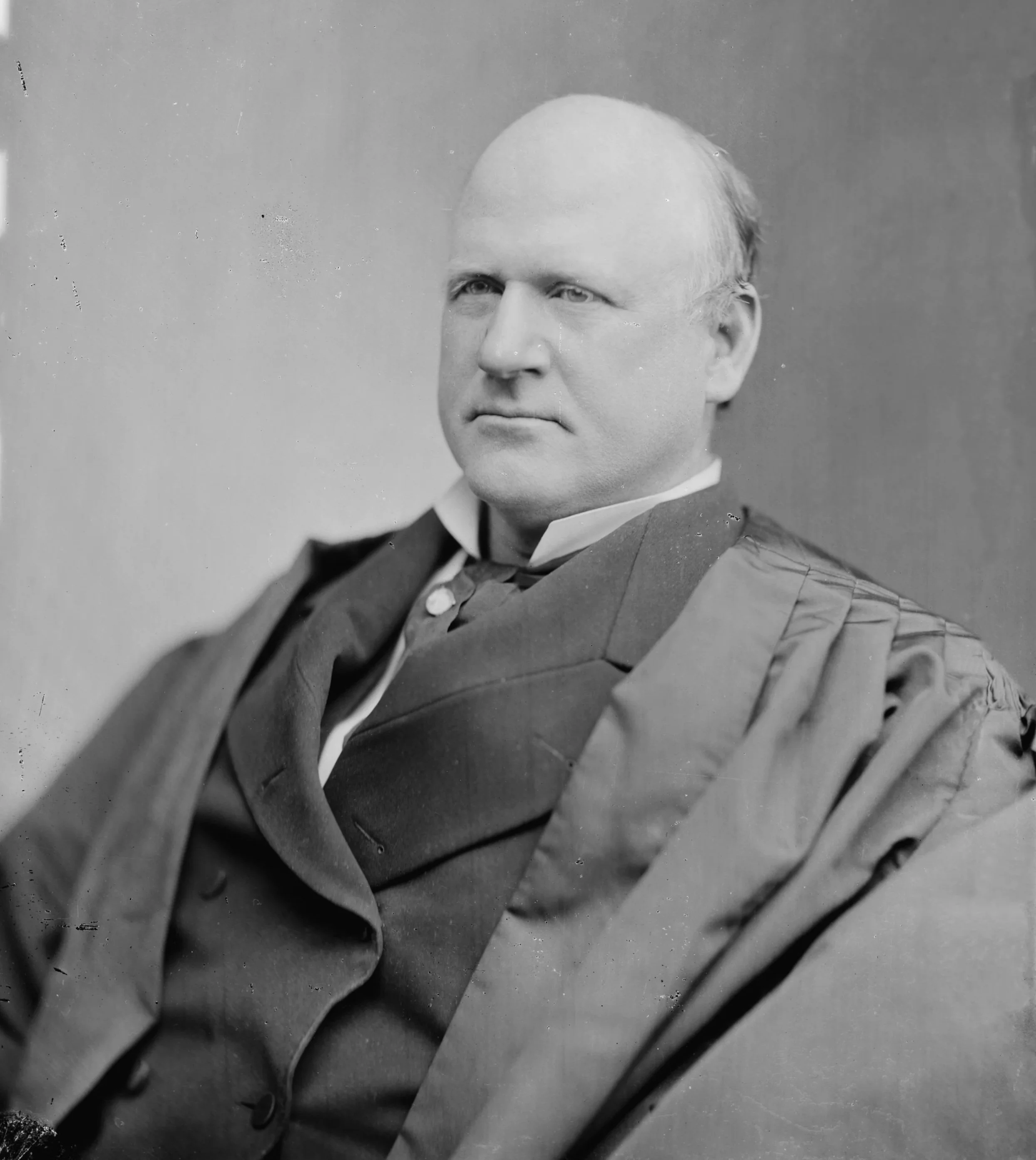Pennoyer v. Neff
Key Principles
In Rem (Property) Jurisdiction Rule: a state court has jurisdiction when there is in state property, proper attachment of the property, and notice to the defendant by publication or better.
In Personam (Personal) Jurisdiction Rule: a state court has jurisdiction when the defendant is (a) present in the state they’re being sued in and (b) receives personal notice of service or voluntarily consents to appear.
Case Overview
CITATION
ARGUED ON
DECIDED ON
DECIDED BY
95 U.S. 714
Oct. 1877
Jan. 21, 1878
Legal Issue
Can a state court exert personal jurisdiction over an out-of-state defendant, who was not personally served within the state, to seize his in-state property?
Holding
Yes, but only if the defendant is present in the state they’re being sued in and receives personal notice of service or voluntarily consents to appear.
The contested newspaper notice posted in the Pacific Christian Advocate | Credit: John H. Mitchell, Pacific Christian Advocate
Background
Marcus Neff, a non-resident of Oregon, hired J. H. Mitchell to perform legal services but failed to pay him. Mitchell sued Neff in an Oregon state court to recover less than $300, including costs, for the unpaid fees. Because Neff was not a resident of Oregon and could not be personally served with process, Mitchell proceeded by constructive service through publication of the summons in the Pacific Christian Advocate, a local Oregon newspaper. Neff did not appear in the action, and the court entered a default judgment against him.
After the default judgment was rendered, Neff acquired approximately 300 acres of land in Oregon valued at about $15,000. To satisfy his judgment, Mitchell had the sheriff seize and sell the property, even though it had not been attached or brought under the jurisdiction of the court before the judgment. At the sheriff’s auction, Mitchell purchased the land and later assigned it to Sylvester Pennoyer, who received a sheriff’s deed as evidence of title.
When Neff learned that his land had been sold, he brought suit in the United States Circuit Court for the District of Oregon against Pennoyer to recover the property. The lower court held that Mitchell’s judgment was invalid due to defects in the affidavit supporting the constructive service, and Pennoyer appealed to the U.S. Supreme Court.
Summary
8 - 1 decision for Neff
Pennoyer
Neff
Waite
Hunt
Strong
Miller
Bradley
Clifford
Harlan I
Field
Swayne
Opinion of the Court
Writing for the Court, Justice Stephen Field held that a state court can’t exercise jurisdiction or authority over a person who is not present within its territory, and constructive service through publication is inadequate to establish personal jurisdiction in a suit seeking to impose personal liability.
Justice Field distinguished between two types of proceedings: suits in personam, which adjudicate personal rights and obligations, and suits in rem, which determine rights to specific property. In a personal action, jurisdiction can be obtained only through personal service of process or voluntary appearance by the defendant. In contrast, when the proceeding is directed against property located within the state, the court may exercise jurisdiction by attaching or otherwise bringing that property under its control at the outset of the case, even if the owner is a non-resident.
Justice Field explained that because the Oregon court had not attached Neff’s land before entering judgment and relied only on publication notice, they lacked jurisdiction over Neff and their judgment against him was invalid. As a result, the sheriff’s sale of Neff’s land and the transfer of title to Pennoyer were void. Justice Field ultimately affirmed the lower court’s decision in favor of Neff, finding that the earlier judgment against him violated his due process rights under the Fourteenth Amendment.









